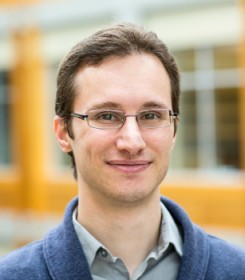
3:30 pm to 4:30 pm
NSH 1305
 Sergey Levine
Sergey Levine
Assistant Professor, UC Berkeley
Abstract
Deep learning methods have provided us with remarkably powerful, flexible, and robust solutions in a wide range of passive perception areas: computer vision, speech recognition, and natural language processing. However, active decision making domains such as robotic control present a number of additional challenges, standard supervised learning methods do not extend readily to robotic decision making, where supervision is difficult to obtain. In this talk, I will discuss experimental results that hint at the potential of deep learning to transform robotic decision making and control, present a number of algorithms and models that can allow us to combine expressive, high-capacity deep models with reinforcement learning and optimal control, and describe some of our recent work on scaling up robotic learning through collective learning with multiple robots.
Additional Information
Host: Sidd Srinivasa
Appointments: Stephanie Matvey (smatvey@cs.cmu.edu)
Speaker Biography
Sergey Levine received a BS and MS in Computer Science from Stanford University in 2009, and a Ph.D. in Computer Science from Stanford University in 2014. He joined the faculty of the Department of Electrical Engineering and Computer Sciences at UC Berkeley in fall 2016. His work focuses on machine learning for decision making and control, with an emphasis on deep learning and reinforcement learning algorithms. Applications of his work include autonomous robots and vehicles, as well as computer vision and graphics. His research includes developing algorithms for end-to-end training of deep neural network policies that combine perception and control, scalable algorithms for inverse reinforcement learning, deep reinforcement learning algorithms, and more.
